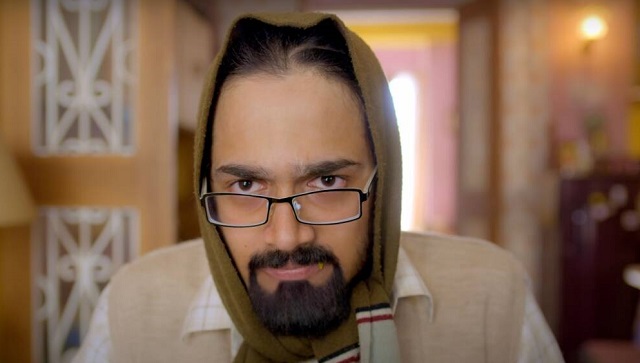Language: Hindi Before I sat down to watch Dhindora,
Bhuvan Bam’s YouTube series
, my friends told me, “Don’t take it too seriously. Just have fun. It’s not pretentious, and it doesn’t try to be something it’s not.” All fair points. But, have you noticed that people only say, “It doesn’t try to be something it’s not” when the show/movie is bad? For the good stuff, it’s usually just “It’s good, and you HAVE to watch it.” So it was a clear indication of what was to come. For those of you who’re living under a rock and have somehow missed the rise of the YouTubers,
Bhuvan Bam
(aka
BB ki Vines
) is one of the most popular people on the Indian internet. It shows in the numbers that Dhindora is getting- it’s the second most popular web show of 2021, according to IMDB. Known for his comedic sketches, Bam is also famous for playing multiple characters in his videos. He’s been building these characters for years, and they are regular crowd-favorites. It is this world from his sketches that he brings to Dhindora, featuring the same family (Bhuvan, his mother Janki, his father Babloo, along with Titu Mama, Bancho (that’s his name, chill), Sameer Fuddi, and others). We find out early on that Babloo has won a lottery that will change the lives of his family members (and their neighbours, as usually happens when someone wins a lottery). However, Babloo has an accident that leads to memory loss. By then, though, everyone’s more concerned with the 11 crores the family has supposedly won. The commentary on life and relationships in metro cities is done subtly, yet there is a world of emotion behind them. Dhindora talks about the breakdown of the nuclear family, with very little connection between the members. Bhuvan struggles to connect to and empathize with his parents, and over the course of the show, he comes to understand his family and their quirks. The other important “lesson” that the show gives is the idea of the dhindora itself. Don’t brag about things till you have actually achieved them- Anup Soni, in his Crime Patrol avatar, reminds us in the end. For his fans, especially those who have developed a relationship with the characters over the years, it is nothing short of brilliant to have them together in a proper show. What works for Bam is his comfort as a performer. He moves seamlessly between his roles, convincing and passionate as always. Bam is immensely likeable, so it’s easy to root for him and buy into his world, complete with its quirks, idiosyncrasies, and middle-class anxieties.
The pacing of the show leaves much to be desired as well. While the 8 episodes are about 15-20 minutes long, some don’t have any major plot points.
Would this show have been better as a 5 or a 6 episode series? Maybe. After all, length isn’t everything (Here’s hoping Bam appreciates my sense of di*k-jokes humour). The show is written by Abbas and Hussain Dalal, along with Bam himself, but the screenplay often stumbles. Too often, the device used to justify a plot twist is merely a “We didn’t show the whole scene last time”. Finally, it is the story that makes Dhindora a weak watch. There are too many twists and revelations. The problem with having twists in every episode is that they all have to lead somewhere. That’s where the show falters. Further, with a classic Deux ex Machina in the end, the journey of the characters doesn’t hold meaning. Essentially, Dhindora works when Bam plays to his strengths- his relatability and his multifaceted performances. But as soon as the show steps out of that comfort zone- essentially an episodic mode of storytelling- it stumbles and fails to meet its mark. The shows is streaming on YouTube.
Shreemayee Das is a writer and a stand-up comedian. She writes mostly on cinema and culture. You can find her on Instagram and Twitter @weepli.
)